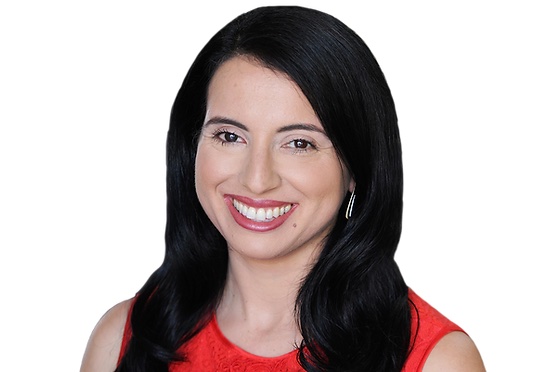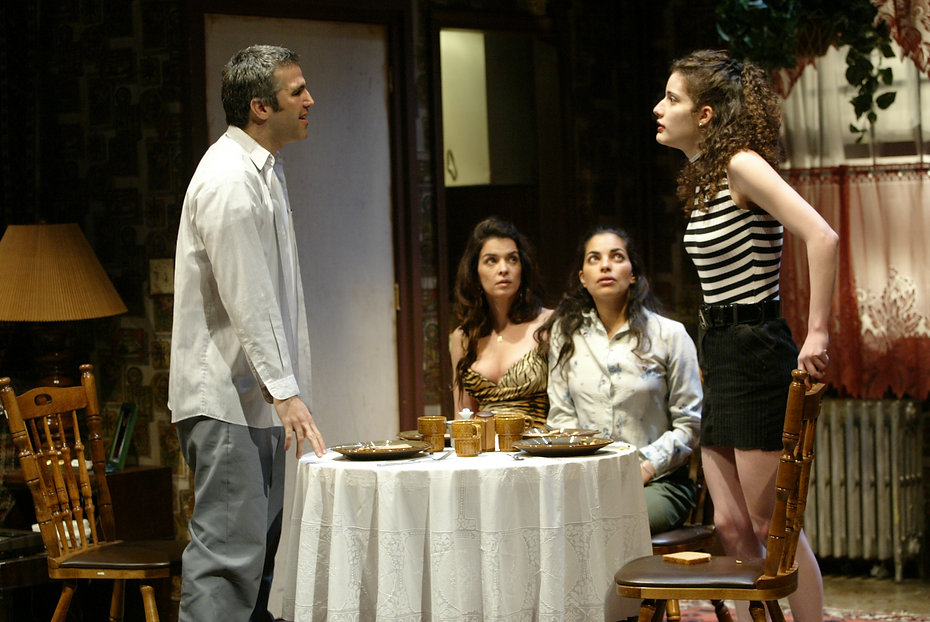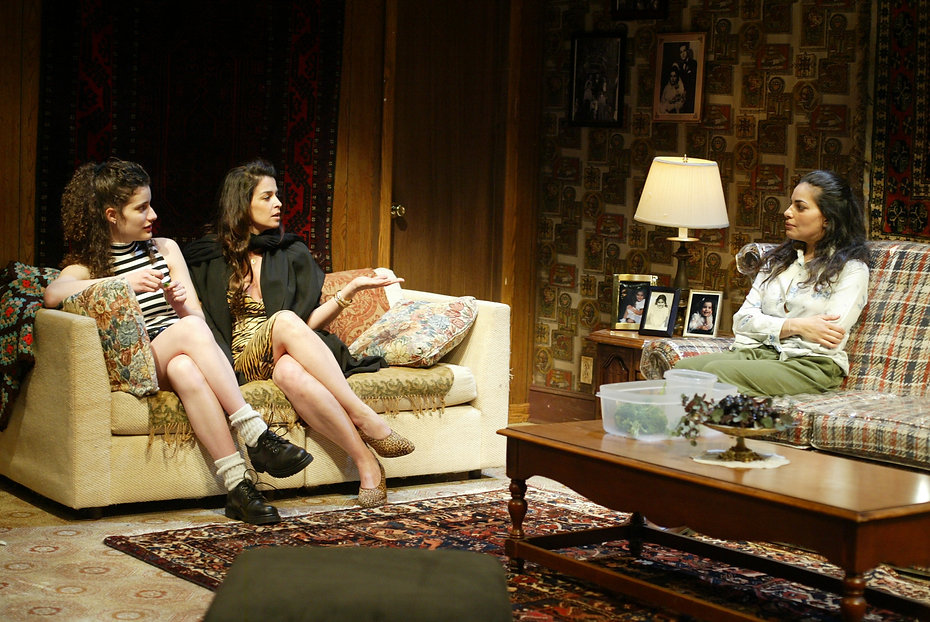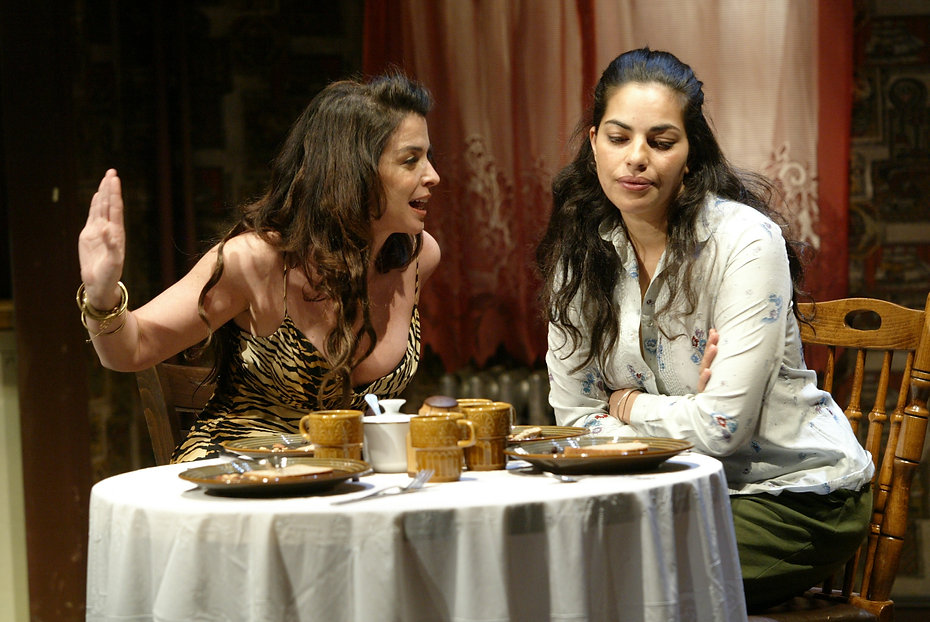
Biography
Betty Shamieh is a Palestinian-American playwright who explores the Arab experience through various lenses in her work. Throughout her career, she has authored fifteen plays that have had much success. Some of her works include Roar (2004), which will be further analyzed in this page, The Black Eyed (2007), Chocolate in Heat (2001), Territories (2008) and Fit for a Queen (2016). Roar and The Black Eyed both premiered off-Broadway: Roar opened in the New Group Theatre in NYC and The Black Eyed premiered at the New York Theatre Workshop. Her other plays have been produced at the Magic Theatre in San Francisco, the Theatre for the New City, Playhouse Theatre in Stockholm Sweden, and the Theater Fornos in Athens. Her plays have also been translated into seven languages. Shamieh received her B.A. from Harvard University and her M.F.A. in Playwriting from the Yale School of Drama. She has taught playwriting at Columbia University and Denison University, and currently is a professor at Marymount Manhattan College in NYC. Shamieh was named a Playwriting Fellow at Harvard University’s Radcliffe Institute for Advanced Studies, is a two-time recipient of the NY Foundation for the Arts Playwriting Fellowship and received a Guggenheim Fellowship for Drama and Performance Art. She was named the UNESCO Young Artist for Intercultural Dialogue in 2011, is the winner of McKnight National Residency and Commission, Sundance Theatre Institute Residency, and received the NY Times Critics Pick four times with her play Roar. Furthermore, she is the first Palestinian-American to have a play produced off-Broadway and her works are taught at universities throughout the U.S.
In July 2021, Shamieh was selected, along with three other writers, to be a part of Noor Theaters Artists Advancing Cultural Change Cohort. This program commissions artists to create their own work in response to contemporary American culture through a Middle Eastern lens. These pieces in the cohort typically reflect the artist’s own experiences, or address issues relevant to their cultures and communities. For Shamieh, this award is in line with what she does in a majority of her plays in the way that she strives to explore the Arab experience so that individuals have a better understanding and can learn from it. For her commission she will be writing a half hour television pilot titled Mecca of Comedy. This series is inspired by her play Roar in the way that it is about a “raunchy Arab female comic trying to move her career forward while living in the midst of the extremely conservative Arab American community of Detroit.”
Roar
- Breakdown:
- 3W Palestinian-American, 2M Palestinian-American
- Synopsis:
- Roar considers Irene Yacoub, a 15-year-old girl looking to become an American blues singer. Irene struggles with truly finding her identity as a Palestinian-American living in Detroit, Michigan, and has a hard time building a relationship with her parents because she wants to do focus on singing rather than school and other activities that her parents suggest. Because of this, there is constant tension in the household, and the characters struggle with each other. Soon, Karema’s sister, Hala, arrives at the Yacoub household one day with no return ticket back to Palestine. She is more outspoken than conservative Karema and wants to expose Irene to the truth about her family and culture, which Karema has not previously divulged to her daughter. Towards the end of the play, Irene walks in on her father Ahmed and aunt Hala having an affair, and the family conflict heightens. Ultimately, after her father leaves her and her mother to go to Jordan with Hala, Irene must live with that fact and continue to struggle in finding her identity in her new home.
- Development/Production History:
- Opened off-Broadway at The New Group on April 7, 2004
- Photos from production:



- Plays
- Chocolate in Heat (2001)
- Roar (2004)
- The Black Eyed (2007)
- Territories (2008)
- Again and Against (2011)
- Fit for a Queen (2016)
- The Strangest (2017)
- As Soon as Impossible (2021)
- Bibliography
- Aslam, Mohammad. “Betty Shamieh: An Interview.” Betty Shamieh | An Interview, www.themontrealreview.com/2009/Betty-Shamieh.php.
- Brogan, Allison Faith. “Fortifying the Roar of Women: Betty Shamieh and the Palestinian-American Female Voice.” (2012).
- Jefferson, Margo. “A Palestinian Blues Singer in Detroit? Her Father Thinks Not.” The New York Times, The New York Times, 8 Apr. 2004, www.nytimes.com/2004/04/08/theater/theater-review-a-palestinian-blues-singer-in-detroit-her-father-thinks-not.html.
- Selim, Yasser Fouad. “The Representation of Arab America in Betty Shamieh’s Roar and The Black Eyed.” Comparative American Studies 10.4 (2012): 293-303. Web.
- Stasio, Marilyn. “Roar.” Variety, Variety, 26 Apr. 2004, variety.com/2004/legit/reviews/roar-4-1200533806/.
- Web Resources
Reflection on Contribution to Anti-Racist Theatre
In an article by Betty Shamieh, she explains how early in her career she had to practically sell her artistic soul for her works to be successful. People did not believe in her abilities or stories because she looked different than them and was immediately cast aside. In her works, Shamieh strives to explore the Arab experience through various different lenses that are both serious and comedic. In her playwriting, she has been faced with many challenges that ultimately sent her across the globe because no U.S. directors or theatres would select her plays. Through this challenge, Shamieh realized she had to make her, and her peoples voices heard and contribute to the idea of anti-racist theater.
In Roar, the characters are struggling to find their voice in their new home as they have recently immigrated from Palestine to America. Irene is able to turn to singing as a way to make her voice heard, but her mom, dad and aunt have a harder time with this, and experience struggles the mainstream U.S. Anglo family doesn’t have to worry about. Karema goes on to explain this idea by simply saying “no one tries to pretend we belong.” Many of Shamieh’s works, including The Black Eyed and Chocolate in Heat, are about identity, and those attempting to blend into a new culture even though they are extremely different. Additionally, Shamieh specifically gives a voice to Arab women, and is able to tell some of her own stories in her works. Because she has experienced what it’s like to be a Palestinian-American, and all the challenges that come with this, she is able to contribute to anti-racist theatre all while entertaining and teaching viewers.
Finley Corrigan; Film, Television and Theater; Class of 2023